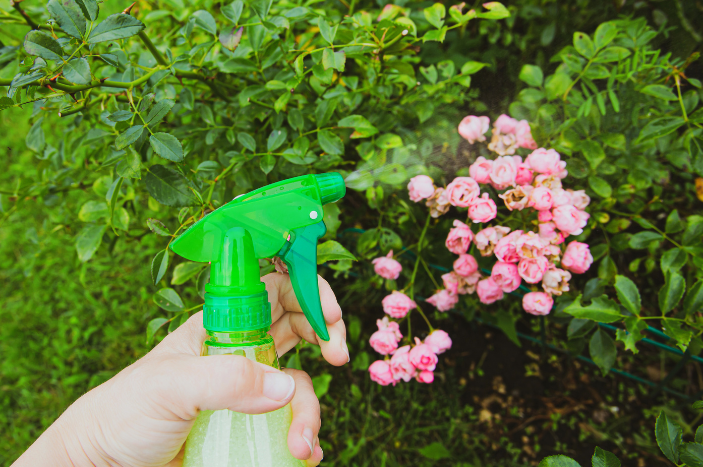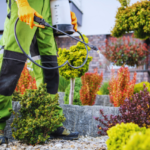Are you looking to avoid synthetic pesticides or save on organic ones by making your own? If you’re a hands-on gardener, you’re likely to turn to natural insecticides from your pantry or garden when pests start attacking your plants. But how effective are these solutions?
Using plants to create pesticides is a centuries-old practice. However, in today’s internet age, there are countless claims about various homemade sprays that can supposedly repel or kill different garden pests. I’m here to help you figure out which homemade sprays are actually effective and to recommend some organic pesticides if you prefer to buy them.
Because there are so many types of insects and different homemade insect sprays, there isn’t a one-size-fits-all answer to whether these homemade sprays work. In general, many homemade sprays can deter or kill certain garden pests.
Homemade sprays may kill some insects, but often not as effectively as commercial organic pesticides. The effectiveness of these sprays depends on factors like solution strength, the specific pests, and how the spray is applied. For example, there are many ways to make a garlic spray, so not all garlic sprays are the same!
Apart from effectiveness, you also need to consider whether these homemade sprays are safe to use and easy to apply. Many of them require frequent reapplication—often once or twice a week—to be effective in controlling pests.
The effectiveness of homemade insecticides depends on the type of spray, the pests you’re targeting, and how you use it. Let’s look at some popular homemade sprays and their effects on garden pests.
Hot Pepper Spray
Chili peppers get their spiciness from capsaicin, which is the compound that makes people interested in using hot peppers as an insecticide.
Scientific Research
A 2016 study tested the effectiveness of hot pepper spray on four common cabbage pests: cabbage aphids, diamondback moth larvae, cabbage loopers, and cabbage webworms. Researchers applied the spray after the insects were on the plants and measured the insect population before and after treatment.
The study found that hot pepper spray reduced all four types of pests, though effectiveness ranged from just 18% to 55%, depending on the pest. Notably, researchers applied the spray weekly and gathered data over three weeks.
Results Depend on Dosage
Another study compared natural capsaicinoids (related to capsaicin) to commercial insecticides on 14 insect pests. The study found that larger amounts of pepper compounds were needed to kill insects compared to pesticides, indicating capsaicin is less effective.
Garlic Spray
If you have extra garlic, you can blend or crush the cloves with water to make a garlic spray. Crushing garlic releases a compound called allicin, which breaks down into sulfur-containing substances that repel and harm insects.
Scientific Research
A study looked at garlic spray’s effects on zucchini pests and plant health. Researchers found that weekly applications of a 1% garlic solution increased the plants’ chlorophyll content and yield, suggesting that garlic may act as a bio stimulant and help improve plant health. They concluded that garlic spray has a protective effect against insect pests.
Results Vary with Concentration
Other studies show that garlic juice can kill the eggs, larvae, and adults of pests like houseflies and cabbage flies, but effectiveness varies with concentration and exposure time. Higher concentrations or longer exposure times generally improve results.
Neem Spray
Neem oil, derived from a tropical tree native to India and Bangladesh, is rich in a compound called azadirachtin, which disrupts insect reproduction and molting and deters feeding.
Scientific Research
Studies show that neem sprays can effectively control a range of pests, including aphids, thrips, and caterpillars. One study tested neem leaf and seed extracts on radish pests and found that both reduced flea beetles, thrips, and whiteflies, with neem seed extract being more effective.
However, neem loses effectiveness when exposed to sunlight, so reapplication is often necessary.
Marigold Spray
Marigolds are commonly planted in vegetable gardens to deter pests, but can they also be used in spray form?
Scientific Research
Research on marigold sprays is limited, but some studies suggest they can have moderate effects on pests. For example, one study showed that marigold extract negatively affected fall armyworm larvae health.
Results show that marigold sprays have varying effectiveness, depending on the pest and concentration.
Conclusion
Homemade insecticide sprays can be a helpful addition to your garden care routine, but they’re not always a complete solution. Their effectiveness depends on many factors, including the type of pest, concentration, and frequency of application. While they may not be as potent as commercial options, they offer a natural alternative that can be safer for your garden’s ecosystem. If you’re looking for a more reliable and less labor-intensive option, you might consider investing in organic pesticides that are specifically designed for garden use.


